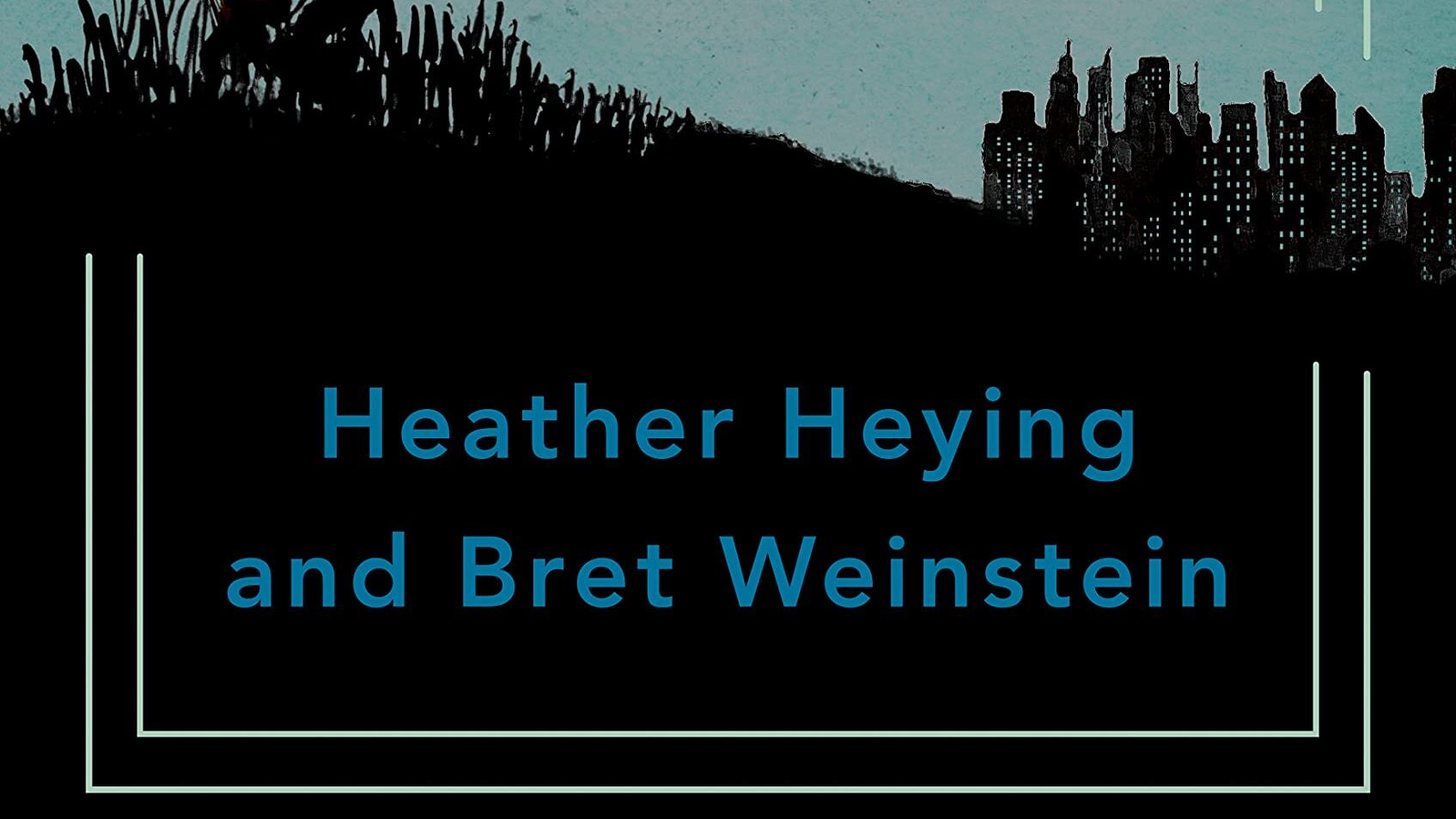From the 1870s until World War II, social Darwinism drove policies that shaped people’s lives. Thousands looked to evolution to explain the human condition. By 1921, eugenicists, including members of Darwin’s family, hailed their work as “the self-direction of human evolution.”
Such a phrase would be at home in A Hunter-Gatherer’s Guide to the 21st Century: Evolution and the Challenges of Modern Life (Portfolio, 320 pages, $28). In it, former Evergreen State College professors and current podcasters Heather Heying and Bret Weinstein argue that relevant human history began 3.5 billion years ago.
(Full disclosure: One of the authors of this review, Nancy Koppelman, was a colleague of theirs at Evergreen, where Koppelman still teaches. )
Weinstein was also the subject of a recent WW cover story (“Drug & Pony Show,” Sept. 15, 2021) because he and his wife, Heying, extol the use of ivermectin, a horse dewormer, as a treatment for COVID—which runs counter to all advice from the FDA on the matter.
The plot of Hunter-Gatherer’s Guide is adaptation, from fish to primates to post-industrialists. Weinstein and Heying explain that they want the reader to “see through the noise of our modern world and become a better problem solver” to overcome contemporary “hyper-novelty” which humanity created but is not evolved to manage. The unique human ability to adapt anywhere created our problems and can save us.
Hunter-Gatherer’s Guide has virtues. The authors deftly outline fundamentals of biology, natural history, and evolution, illustrated by fascinating examples from the animal kingdom. Their prose sometimes sparkles with wit and humor; there are sentences that we wanted to read twice. The book’s concept of an “evolutionary toolkit” is intriguing; it posits, for example, that important cultural connections happen in modern versions of the ancient campfire. Their analysis of the “sustainability crisis” is compelling, their enthusiasm palpable. Heying and Weinstein are skilled at teaching what they know.
However, they also try to teach what they don’t know.
They claim that “Western, educated, industrialized, rich, and democratic” societies (acronym WEIRD) produce cunning, helpless children, adults who can’t grow up, and bad health, food, sex, sleep and schools.
Weinstein and Heying claim an apolitical approach, crafted “through the indiscriminate lens of our evolution.” Yet they reveal their politics often, such as in the Childhood chapter: “Becoming an adult is, in part, about learning what the system is, where its weaknesses are, and how to take advantage of those weaknesses.” The central lesson of the “hunter-gatherer’s guide” is survivalism.
Many sections of the book pertain to children, and are troubling. Kids should run free, largely unsupervised (they admire a 4-year-old crossing a busy street alone in Ecuador, where 52% of the population lives in poverty) and resolve fights themselves because “bullies and jerks are more likely to lose power than gain it.” Overprotection will yield “adults who bristle at the unexpected and the new.”
The authors are big on risk (the word shows up 98 times in the book), but they fail to acknowledge that they personally have lots of control over the risks their own children confront. They probably don’t cultivate their kids’ survival skills by exposing them to insufficient food and water, lead-lined water pipes, life-threatening diseases (although both say they aren’t vaccinated against COVID), or people who would do them harm.
Sometimes the authors are just wrong, claiming, “in time of famine, nearly nobody reproduces,” ignoring the well-known fact that birth rates tend to be higher among the poor. Hundreds of millions of people are locked into lives that they cannot change. Poverty, place-boundedness, limited employment options, and generational trauma influence how people can raise their children. The scale and ethical meaning of human desperation escapes their curiosity and concern.
They assume that 21st century hunter-gatherers have resources and choices; they can ignore politics and take their own power for granted. Heying and Weinstein position themselves as cutting-edge radical thinkers, but this is neoconservatism outfitted for visits to the farmers market and stays at do-it-yourself wilderness camp.
Hunter-Gatherer’s Guide says surviving near misses strengthens people, but the most vexing risks people face stem from unjust circumstances that limit their agency, and sometimes kill them. We need politics, however limiting and divisive, to address that.
Many people like what Heying and Weinstein have to say. Perhaps that’s because they grant their readers a kind of absolution: Winners may ignore the history books.
In Heying and Weinstein’s telling, history’s protagonist is the genome, always “in the driver’s seat” aiming to enhance “genetic fitness” and subordinating culture as its “tool.”
Heying and Weinstein have adapted to their new environment in the public eye. Their challenge now is to stay there. This book is their latest attempt to do that.
